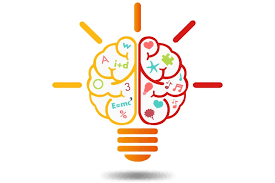DỊCH HOÀN THIỆN ĐỀ THI IELTS READING VÀ GIẢI THÍCH ĐÁP ÁN:
A Revolution in Knowledge Sharing
The pressure to transform our institutions of learning continues. Virtually every enterprise and institution are grappling with the disruptions and opportunities caused by Web-enabled infrastructures and practices. New best practices, business models, innovations, and strategies are emerging, including new ways to acquire, assimilate, and share knowledge. Using technologies that are already developed or that will be deployed over the next five years, best practices in knowledge sharing not only are diffusing rapidly but will be substantially reinvented in all settings: educational institutions, corporations, government organizations, associations, and nonprofits. But institutions of learning are in a unique position to benefit from an added opportunity: providing leadership in e-knowledge. ĐOẠN 1
Áp lực chuyển đổi các tổ chức học tập của chúng ta vẫn cứ tiếp diễn. Hầu như mọi doanh nghiệp và tổ chức đang vật lộn với những gián đoạn và cơ hội do cơ sở hạ tầng và hoạt động hỗ trợ Web gây ra. Các phương pháp, mô hình kinh doanh, sáng kiến và chiến lược mới tốt nhất đang xuất hiện, bao gồm các cách thức mới để đạt được, tiếp thu và chia sẻ kiến thức. Bằng cách sử dụng các công nghệ đã được phát triển hoặc sẽ được triển khai trong vòng 5 năm tới, các phương pháp tốt nhất trong việc chia sẻ kiến thức không chỉ được phổ biến nhanh chóng mà còn được đổi mới đáng kể trong mọi môi trường: cơ sở giáo dục, tập đoàn, tổ chức chính phủ, hiệp hội và tổ chức phi lợi nhuận. Nhưng các tổ chức học tập đang ở một vị trí có một không hai nhằm hưởng lợi từ một cơ hội bổ sung: thực hiện khả năng lãnh đạo trong kiến thức điện tử.
E-knowledge finds expression in many shapes and forms in a profoundly networked world. It is not just a digitised collection of knowledge. E-knowledge consists of knowledge objects and knowledge flow that combine contents, contexts, and insights on applications. E-knowledge also emerges from interactivity within and among communities of practice and from the troves of tacit knowledge and tradecraft that can be understood only through conversations with knowledgeable practitioners. ĐOẠN 2
Kiến thức điện tử biểu hiện dưới nhiều dạng và hình thức trong một thế giới hết sức kết nối. Nó không chỉ là một bộ sưu tập kiến thức được số hóa. Tri thức điện tử bao gồm các đối tượng tri thức và luồng tri thức kết hợp nội dung, bối cảnh và hiểu biết sâu sắc về cách ứng dụng. Kiến thức điện tử cũng xuất hiện từ sự tương tác qua lại trong và giữa các cộng đồng thực hành và từ kho tàng kiến thức và kỹ năng ngầm chỉ có thể hiểu được thông qua các cuộc trò chuyện với những người thực hành có hiểu biết.
E-knowing is the act of achieving understanding by interacting with individuals, communities of practice, and knowledge in a networked world. E-knowledge commerce consists of the transactions based on the sharing of knowledge. These transactions can involve the exchange of digital content/context and/or tacit knowledge through interactivity. ĐOẠN 3
Kiến thức điện tử là hành động đạt được sự hiểu biết bằng cách tương tác với các cá nhân, cộng đồng thực hành và kiến thức trong một thế giới được kết nối. Thương mại tri thức điện tử bao gồm các giao dịch dựa trên việc chia sẻ tri thức. Các giao dịch này có thể liên quan đến việc trao đổi nội dung/bối cảnh kỹ thuật số và/hoặc kiến thức ngầm thông qua tương tác.
Transactable e-knowledge can be exchanged for free or for fees. E-knowledge is enabling not only the emergence of new best practices but also the reinvention of the fundamental business models and strategies that exist for e-learning and knowledge management. E-knowledge is technologically realized by the fusion of e-learning and knowledge management and through the networking of knowledge workers. ĐOẠN 4

1. Mua bộ đề gần 400 bài ielts reading - Dịch và giải chi tiết Chỉ 199k bao gồm toàn bộ đề trong bộ Cambridge ( từ bộ 1 -19) và nhiều đề thi thực tế ( xem danh sách 400 đề ielts reading tại đây). Xem bài mẫu tại đây, Bài mẫu 1, bài mẫu 2, bài mẫu 3. Giải đề bao gồm phần dịch bài đọc, dịch phần câu hỏi, giải thích chi tiết, ( chỉ có thể tải, in phần đề để luyện tập, phần giải chi tiết và dịch chỉ xem online).
>>>>>>> Đặc biệt tặng kèm Dịch và giải chi tiết bộ đề Ielts listening từ Cam 10-18 và tặng kèm hơn 300 đề Ielts thực tế ( không có lời giải chi tiết chỉ có đề và đáp án) ( khác với bộ 400 đề ở trên). Vui lòng điền thông tin theo form tại đây và thanh toán theo thông tin CK trong form.
2. Đặc biệt dành tặng 100 bạn hoàn thành buổi học thử miễn phí khóa học Ielts Speaking online 1 kèm 1, các bạn sẽ được tặng bộ đề 400k bài Ielts reading và bộ đề Ielts Listening bộ Cam từ 10-18 gồm bài dịch và giải chi tiết, giải thích từ vựng khó ( thời hạn sử dụng trong vòng 2 tháng). Xem thông tin khóa học Ielts Speaking online 1 kèm 1 và đăng ký học thử tại đây.
Transactable e-knowledge and knowledge networking will become the lifeblood of knowledge sharing. They will create a vibrant market for e-knowledge commerce and will stimulate dramatic changes in the knowledge ecologies of enterprises of all kinds. They will support a “Knowledge Economy” based on creating, distributing, and adding value to knowledge, the very activities in which colleges and universities are engaged. Yet few colleges and universities have taken sufficient account of the need to use their knowledge assets to achieve strategic differentiation. ĐOẠN 5
In “It Doesn’t Matter,” a recent article in Harvard Business Review, Nicholas G. Carr endorsed corporate leaders’ growing view that information technology offers only a limited potential for strategic differentiation. Similar points are starting to be made about e-learning, and knowledge management has been under fire as ineffectual for some time. ĐOẠN 6
The truth is that e-learning and knowledge management can provide strategic differentiation only if they drive genuine innovation and business practice changes that yield greater value for learners. Carr’s article provoked a host of contrary responses, including a letter from John Seely Brown and John Hagel III. Brown is well-known for his insights into the ways in which knowledge sharing can provide organizations with a solid basis for strategic differentiation. ĐOẠN 7
>>>>> Xem thêm:
♦ Tổng hợp câu trả lời, câu hỏi, từ vựng của hơn 70 chủ đề Ielts Speaking part 1
♦ Tổng hợp gần 400 đề thi Ielts reading ( bao gồm dịch, giải chi tiết, từ vựng)
For questions 1-4, choose NO MORE than TWO WORDS for each answer.
Thanks to the advent of the computer, learning institutions today are providing new ways of acquiring knowledge, through tools that are 1.................... fast and which are being already 2...................... in all fields and settings, despite the 3................... the process may entail, which all institutions are now 4...............................
Questions 5-9 are based on paragraph 46.
In boxes 5 - 9 on your answer sheet, write
YES if the statement agrees with the views of the writer
NO if the statement contradicts the views of the writer
NOT GIVEN if it is impossible to say what the writer thinks about this
5. E-knowledge is primarily based on practices used in business.
6. Educational institutions can be leaders in knowledge networking.
7. E-knowledge has several benefits to it.
8. Communities of practice are one source of E-knowledge.
9. The key to the success of knowledge management and e-learning is offering strategic differentiation.
ĐÁP ÁN, GIẢI CHI TIẾT và DỊCH HOÀN THIỆN ĐỀ THI IELTS READING:
A Revolution in Knowledge Sharing
For questions 1-4, choose NO MORE than TWO WORDS for each answer.
Thanks to the advent of the computer, learning institutions today are providing new ways of acquiring knowledge, through tools that are 1...diffusing................. fast and which are being already 2.....deloyed................. in all fields and settings, despite the 3......disruptions............. the process may entail, which all institutions are now 4........grappling with.....................
Nhờ vào sự ra đời của máy tính, các cơ sở học tập ngày nay đang mang đến những cách thức mới mẻ về tiếp thu kiến thức, thông qua các công cụ đang được phổ biến nhanh chóng và các công cụ đang được triển khai trong tất cả các lĩnh vực và môi trường, bất chấp sự gián đoạn mà quy trình này kéo theo mà các cơ sở hiện giờ đang vật lôn
Giải thích: đoạn 1
The pressure to transform our institutions of learning continues. Virtually every enterprise and institution are grappling with the disruptions and opportunities caused by Web-enabled infrastructures and practices. New best practices, business models, innovations, and strategies are emerging, including new ways to acquire, assimilate, and share knowledge. Using technologies that are already developed or that will be deployed over the next five years,
Questions 5-9 are based on paragraph 46.
In boxes 5 - 9 on your answer sheet, write
YES if the statement agrees with the views of the writer
NO if the statement contradicts the views of the writer
NOT GIVEN if it is impossible to say what the writer thinks about this
5.F E-knowledge is primarily based on practices used in business.
Kiến thức điện tử chủ yếu dựa trên các hoạt động được sử dụng trong kinh doanh.
Giải thích: đoạn 1
Using technologies that are already developed or that will be deployed over the next five years, best practices in knowledge sharing not only are diffusing rapidly but will be substantially reinvented in all settings: educational institutions, corporations, government organizations, associations, and nonprofits.
6.T Educational institutions can be leaders in knowledge networking.
Các tổ chức giáo dục có thể đi đầu trong mạng lưới tri thức.
Giải thích: đoạn 1
But institutions of learning are in a unique position to benefit from an added opportunity: providing leadership in e-knowledge
Answer:
1. diffusing
2. deployed
3. disruptions
4. grappling with
5. NO
6. YES
7. YES
8. YES
9. YES
1. Mua bộ đề gần 400 bài ielts reading - Dịch và giải chi tiết Chỉ 199k bao gồm toàn bộ đề trong bộ Cambridge ( từ bộ 1 -19) và nhiều đề thi thực tế ( xem danh sách 400 đề ielts reading tại đây). Xem bài mẫu tại đây, Bài mẫu 1, bài mẫu 2, bài mẫu 3. Giải đề bao gồm phần dịch bài đọc, dịch phần câu hỏi, giải thích chi tiết, ( chỉ có thể tải, in phần đề để luyện tập, phần giải chi tiết và dịch chỉ xem online).
>>>>>>> Đặc biệt tặng kèm Dịch và giải chi tiết bộ đề Ielts listening từ Cam 10-18 và tặng kèm hơn 300 đề Ielts thực tế ( không có lời giải chi tiết chỉ có đề và đáp án) ( khác với bộ 400 đề ở trên). Vui lòng điền thông tin theo form tại đây và thanh toán theo thông tin CK trong form.
2. Đặc biệt dành tặng 100 bạn hoàn thành buổi học thử miễn phí khóa học Ielts Speaking online 1 kèm 1, các bạn sẽ được tặng bộ đề 400k bài Ielts reading và bộ đề Ielts Listening bộ Cam từ 10-18 gồm bài dịch và giải chi tiết, giải thích từ vựng khó ( thời hạn sử dụng trong vòng 2 tháng). Xem thông tin khóa học Ielts Speaking online 1 kèm 1 và đăng ký học thử tại đây.

.png)

.jpg)




